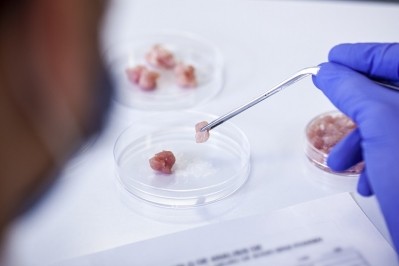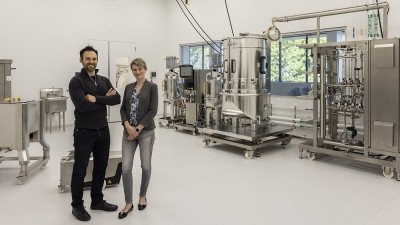Arizona next state to propose cultivated meat censorship

Arizona’s House Bill 2244, introduced by Quang Nguyen (R), state representative and chair of public safety, focuses on stricter requirements for selling and labeling cultivated meat as a measure to avoid confusion among consumers.
The bill decrees that “a person who places a label on a food product may not intentionally misbrand or misrepresent a product that is not derived from livestock or poultry as meat, a meat food product, poultry or a poultry product through any activity,” including cell-cultured food products and synthetically-derived ingredients from plants, insects or other sources.
Arizona’s House Bill 2121 mandates a complete ban of the production or sale of lab-grown meat from Arizona entirely, issuing a penalty of up to $25,000 for violations of the legislation.
“Proposals to censor what alternative protein companies can and cannot say on their labels would set a very dangerous precedent for free speech—also placing an unnecessary burden on small businesses. Ultimately, this is a solution in search of a problem, as consumers are not confused about the alternative protein products on the market,” Chaffin argued.
Critics of state-by-state legislation for food ingredients and additives, as exemplified by California’s law banning four food additives and other states like Illinois and New York proposing similar bans, run a risk of fracturing consumer sentiments around food safety.
A growing list of bills seek to limit cultivated meat sales
The proposed legislation in Arizona follows that of other states as criticism and fear about cultivated meat sales in the US mount.
Texas’ SB 664, which requires producers to label meat alternatives and lab-grown meat, was signed into law in September 2023. The law also encompasses clear language for plant-based products.
Florida’s House Bill 435 prohibits the manufacturing, sale, holding or distribution of cultivated meat, with criminal and licensing penalties for violators. Proposed by Florida’s state representative, Tyler Sirois (R), who expressed support for the farming and cattle industry, said in a recent Politico article that cultivated meat is “an affront to nature and creation."
Could the US fall behind?
As Singapore and Israel pave the way for cultivated meat with government approval, the US risks stifling potential economic growth and fostering competition if it chooses to ban or restrict the production and sale of this innovative food.
“It makes fiscal sense for state governments to back American innovation and generate jobs right here on American soil. However, by outlawing cultivated meat, these proposals block possible economic growth for Americans and send new jobs and revenues overseas,” Chaffin said.
Chaffin continued, “Agriculture has always been about innovation, and alternative proteins like plant-based and cultivated meat are no exception. Companies like Tyson Foods, Cargill, and ADM are all invested in cultivated meat, understanding the value of the new and exciting economic opportunities in the alternative protein field. The Breakthrough Institute estimates that alternative proteins will create more than 200,000 jobs in the United States over the coming decades.”
Last year, USDA approved the sale and production of cultivated meat for two companies—Upside Foods and Good Meat—though neither have launched in retail yet.
Some supporters of cultivated meat express the possibility of collaborating with farms to routinely extract fetal bovine serum needed to grow the cells, while paying for each animal without slaughter, highlighting the potential for farm partnerships in the evolution of the technology.

















